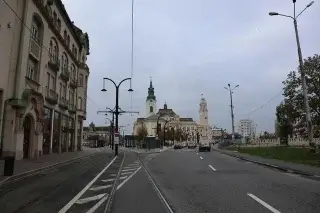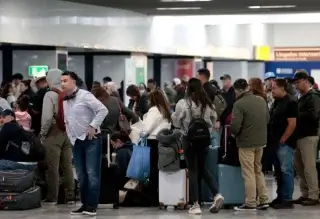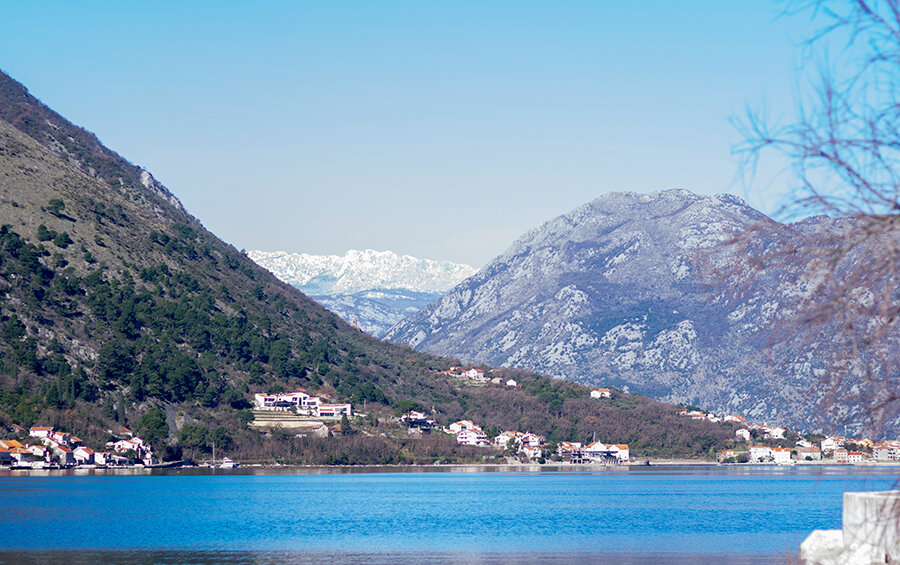read also
 Inflation in Romania Slows to 9.6% but Remains Above Forecast
Inflation in Romania Slows to 9.6% but Remains Above Forecast
 Riots in Mexico Disrupt Air Links to Resort Destinations
Riots in Mexico Disrupt Air Links to Resort Destinations
 UK House Prices Stabilise After 2025 Slowdown
UK House Prices Stabilise After 2025 Slowdown
 Israel Housing Market Eyes a Reset in 2026
Israel Housing Market Eyes a Reset in 2026
 Real Estate Investment Declines in Southeast Europe in 2025
Real Estate Investment Declines in Southeast Europe in 2025
 Asia Becomes the Engine of Global Aviation
Asia Becomes the Engine of Global Aviation
EU Warns Montenegro About Possible Funding Suspension

The European Commission has threatened to withhold over €380 million from Montenegro under the Growth Plan if the country does not change its entry and stay policies. The first decisions were expected to be made as early as February 2025, with Montenegro completely phasing out its visa-free regime by 2028. However, the Montenegrin government has been slow to comply with these requirements, including those related to Russian citizens, Kommersant reports.
Montenegro currently has a visa-free agreement with 13 countries. The country committed to canceling this regime in autumn 2024 as part of its application to participate in the EU Growth Plan, which allocates €6 billion to EU accession candidates—both as grants and preferential loans. Podgorica is set to receive €383.5 million from this fund. Under the agreements, Montenegro was supposed to gradually revoke visa-free travel for several countries each year.
When it made its commitment to Brussels, Montenegro’s visa-free list included 11 countries: Azerbaijan, Armenia, Belarus, Egypt, Kazakhstan, Qatar, China, Kuwait, Russia, Turkey, and Uzbekistan. However, instead of removing countries from the list, the Montenegrin government added Bahrain and Saudi Arabia, triggering a harsh response from the EU. Brussels demanded that Montenegro revoke visa-free travel for at least two countries by the end of February.
The European Commission stressed that Montenegro must fulfill its commitments in order to qualify for EU funding. Previously, Ana Pisonero Hernandez, spokesperson for the European Commission, stated in an interview with Vijesti that Montenegro must align its visa policy with EU standards. However, it was noted that Russia and Belarus were classified as "second-tier risk countries", meaning that introducing visas for them was not a priority. This is particularly relevant given that Russian tourists accounted for a record number of overnight stays in Montenegro in 2023.
According to Montenegro’s Statistical Office (MONSTAT), about 246,600 Russian tourists spent 3.7 million overnight stays in the country in 2023, with an average stay of 15 days. They accounted for 23.6% of all overnight stays in Montenegro last year. By comparison, in 2010, before the pandemic, 627,000 Russian tourists visited Montenegro, making up 10.1% of total visitors.
Montenegro's Economic Reality vs. EU Demands
Montenegrin Prime Minister Milojko Spajić stated in early 2024 that the country had previously been economically dependent on non-EU investors and tourists, particularly from Russia, which contributed up to 30% of Montenegro’s income. However, he noted that the government had shifted its focus:
"We have changed this," Spajić said. "Now Russian tourists account for only 7-8%, and dependence on the Russian market has significantly decreased."
Despite this, the Montenegrin government has now pushed back against EU demands, stating that the visa policy required by Brussels does not align with the country’s economic interests. Tourism accounts for 26% of Montenegro’s GDP, and restricting visitors from key markets could hurt the economy.
An official government statement emphasized that Russia continues to have a significant economic impact on Montenegro:
- 230,000 Russian tourists visit Montenegro annually.
- 18,427 Russian citizens hold residency permits, making them the largest foreign community in the country.
Montenegro also maintains strong economic ties with Azerbaijan: The country received a €1 billion investment to develop the Portonovi resort, which attracts 15,000 Azerbaijani tourists annually.
Investments and tourist flow from Kuwait, Qatar, Saudi Arabia, and Bahrain are increasing, offering potential for further market diversification.
Turkey, China, and Belarus: Key Economic Partners
Turkey is Montenegro’s third-largest investor, investing €91.2 million in 2024, with 320,000 Turkish tourists visiting annually.
11,465 Turkish citizens hold Montenegrin residency permits.
China is actively involved in major infrastructure projects, including:
- Construction of highways,
- Renovation of the boulevard between Tivat Airport and Jaz,
- A thermal power plant reconstruction in Pljevlja.
- 58,000 Chinese tourists visited Montenegro in 2024.
Belarus plays a crucial role in Montenegro’s healthcare sector:
- Belarus provides kidney transplants for Montenegrin citizens.
- Currently, 50 Montenegrins are on the waiting list for transplants.
- The Montenegrin Health Insurance Fund covers €70,000 per patient for these procedures.
Balancing EU Aspirations with Economic Reality
Montenegrin authorities underline the need for a phased transition that minimizes economic disruption. They stress that the country has already demonstrated its commitment to EU integration, as evidenced by its decision in 2022 to join EU sanctions against Russia—a move that negatively impacted the tourism sector.
Moving forward, the Montenegrin government aims to find solutions that satisfy both the country’s economic interests and its obligations to the EU, including the gradual revocation of visa-free travel.


